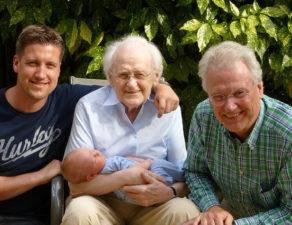
by Joanna C. Feldman and Salvatore M. Di Costanzo
This is not easy. Every day brings a new development. Shelter-in-place. Workplace restrictions. Isolation. Illness. Fear. Anxiety. Loneliness. We understand. We feel it, too.
We also understand that during this time of rampant uncertainty, many people want at least one thing to be certain: their estate plan. We can help. Let’s talk about what that looks like.
We have full capabilities to meet with you remotely. Beyond the conference call (during which multiple people can participate, even if they’re in multiple locations), we can meet via videoconference. It’s a nice way to be together while staying apart. We can use Skype, Zoom, and other apps. We also recognize that many are not familiar with using videoconferencing, and we’re happy to do our best to guide you.
Videoconferencing can also be used for remote execution of estate planning documents. Governor Cuomo recently signed an Executive Order permitting Notaries Public to offer notarial services via videoconference, and we’re fully prepared to continue to avail ourselves of this and any other orders concerning working remotely.
What documents make up a bare bones estate plan?
(1) A comprehensive (i.e., modified Power of Attorney with Statutory Gifts Rider so that someone else can manage your property and financial affairs if you lose your mental capacity or are otherwise unable to manage them yourself.
(2) A Health Care Proxy so that someone else can make health care decisions for your if you lose your ability to make them yourself.
(3) A Last Will and Testament (“Will”) so that you control, to the greatest extent the law allows, how your estate is distributed upon your death.
What happens if you don’t have comprehensive Power of Attorney with gift-giving powers? Someone may need to apply to court to be your guardian.
What happens if you don’t have a Health Care Proxy? In certain circumstances – but not all — family members are permitted to make decisions for you. But you don’t get to choose who makes those decisions, and the person designated by law may not be the person you’d choose.
What happens if you don’t have a Will and you own assets solely in your name and without designated beneficiaries? New York State law – not you – will provide how your estate is distributed. That distribution scheme may be very different from your wishes.
Wills, however, need to be submitted to the Surrogate’s Court and go through probate. And right now, New York’s Surrogate’s Courts are also only handling essential matters. For this reason, we strongly suggest considering creating a revocable trust, as assets held in the trust pass upon death without the need to go through probate.
Finally, asset protection has become increasingly more important. We are expecting significant changes to the Medicaid rules as they apply to homecare cases. We anticipate that effective in a few months, a 5 year look-back period will be imposed on transfers for homecare purposes. This is detrimental to many in need of care. In order to avoid such harsh consequences, a Medicaid Trust should be considered well in advance of needing care.
Please contact us to discuss any of the above.







